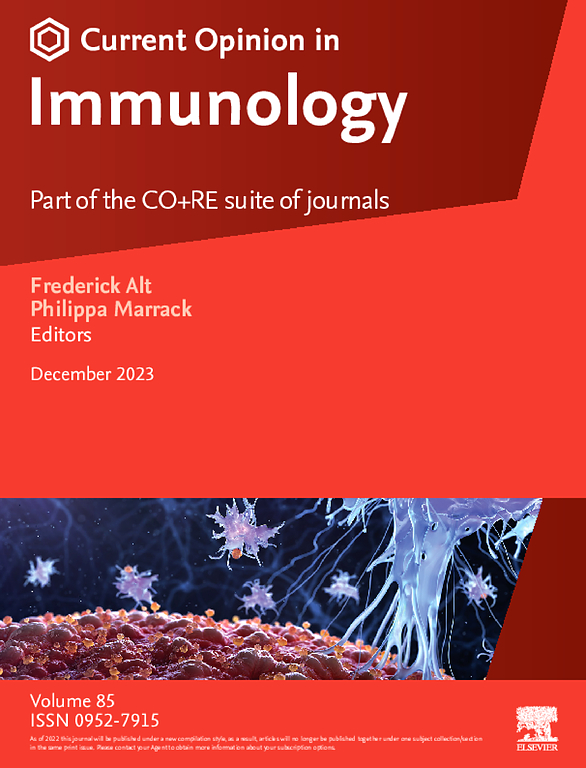Mechanisms and risk factors for perinatal allergic disease
IF 6.6
2区 医学
Q1 IMMUNOLOGY
引用次数: 0
Abstract
Allergies are among the top causes of chronic disease in children. Their pathogenesis classically involves T helper 2 (Th2)-type inflammation driven by IgE-mediated allergen sensing. Triggers influencing allergic disease occur early in life, including before birth. The immature fetal immune system and mucosal barriers undergo periods of plasticity that are open to longitudinal programming by maternal influence. Evidence supports the importance of the maternal immune system in shaping perinatal immunity, as the transfer of cytokines, antibodies, and cells promotes offspring protection from pathogens. However, the same components may lead to allergic predisposition. Maternal–fetal interactions are further modified by epigenetic, metabolic, dietary, and microbiome-mediated effects. Here, we review how diverse maternal exposures and mediators signal across the placenta and through nursing perinatally to promote future tolerance or enhance reactivity against allergens. Improved understanding of the mechanisms predisposing for allergic disease in early life can guide the development of new therapeutics and preventative lifestyle modifications.
围产期过敏性疾病的机制和风险因素。
过敏是导致儿童慢性疾病的主要原因之一。其发病机理通常涉及由 IgE 介导的过敏原感应驱动的 T 辅助细胞 2(Th2)型炎症。影响过敏性疾病的诱因发生在生命早期,包括出生前。未成熟的胎儿免疫系统和粘膜屏障会经历一段可塑性时期,并受母体影响的纵向编程。有证据表明,母体免疫系统在塑造围产期免疫力方面具有重要作用,因为细胞因子、抗体和细胞的转移可促进后代免受病原体的侵害。然而,同样的成分也可能导致过敏倾向。表观遗传、新陈代谢、饮食和微生物介导的影响进一步改变了母胎之间的相互作用。在此,我们回顾了不同的母体暴露和介质如何通过胎盘和围产期哺乳发出信号,以促进未来的耐受性或增强对过敏原的反应性。提高对生命早期过敏性疾病易感性机制的认识,可以指导新疗法的开发和预防性生活方式的调整。
本文章由计算机程序翻译,如有差异,请以英文原文为准。
求助全文
约1分钟内获得全文
求助全文
来源期刊
CiteScore
13.30
自引率
1.40%
发文量
94
审稿时长
67 days
期刊介绍:
Current Opinion in Immunology aims to stimulate scientifically grounded, interdisciplinary, multi-scale debate and exchange of ideas. It contains polished, concise and timely reviews and opinions, with particular emphasis on those articles published in the past two years. In addition to describing recent trends, the authors are encouraged to give their subjective opinion of the topics discussed.
In Current Opinion in Immunology we help the reader by providing in a systematic manner: 1. The views of experts on current advances in their field in a clear and readable form. 2. Evaluations of the most interesting papers, annotated by experts, from the great wealth of original publications.
Current Opinion in Immunology will serve as an invaluable source of information for researchers, lecturers, teachers, professionals, policy makers and students.
Current Opinion in Immunology builds on Elsevier''s reputation for excellence in scientific publishing and long-standing commitment to communicating reproducible biomedical research targeted at improving human health. It is a companion to the new Gold Open Access journal Current Research in Immunology and is part of the Current Opinion and Research(CO+RE) suite of journals. All CO+RE journals leverage the Current Opinion legacy-of editorial excellence, high-impact, and global reach-to ensure they are a widely read resource that is integral to scientists'' workflow.

 求助内容:
求助内容: 应助结果提醒方式:
应助结果提醒方式:


